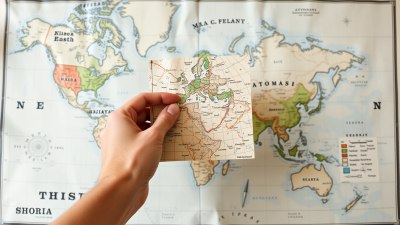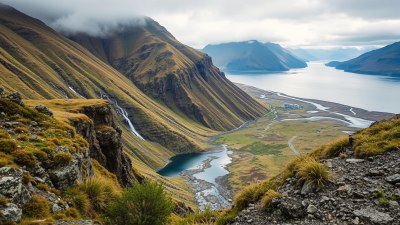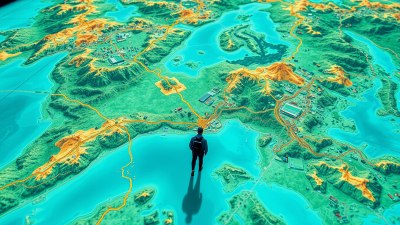The Unexpected Ways Travel Can Teach You More Than History Books
Discover how travel provides unique learning experiences beyond what's found in history books.

Travel is often seen as a joyful escape, a means to explore new cultures, cuisines, and landscapes. However, the benefits of travel extend far beyond mere pleasure and relaxation. Traveling has a unique ability to educate us, providing insights and lessons that often go unrecognized or undervalued compared to traditional education methods, such as studying history books. In this article, we will delve into the unexpected ways travel can teach you more than what can be found in written texts.
Experiential Learning
One of the most significant advantages of travel is experiential learning. Unlike history books that can relay information in a linear, often dry format, travel immerses you in the very fabric of different cultures and lifestyles. When you visit a historical site, for instance, you are not merely observing; you are engaging with the history in a tangible way. You can touch the stones of ancient ruins, walk the streets where significant events occurred, and hear stories directly from local guides or elders that can't be captured in text.
Contextual Understanding
Travel provides contextual understanding that history books often lack. When studying a specific period or event in history, it’s easy to lose sight of the broader socio-economic and cultural conditions that influenced it. Visiting a locality offers an authentic perspective that can reveal historical nuances, such as the significance of a particular monument or the ramifications of a battle on a community. Walking through neighborhoods, observing local customs, and interacting with residents can paint a complete picture of history that textbooks alone cannot offer.
Cultural Sensitivity and Empathy
Travel fosters cultural sensitivity and empathy in ways that reading about cultures cannot. When you experience the daily lives of people from different backgrounds, you gain intimate knowledge of their struggles, hopes, and traditions. For example, participating in local festivals or communal events allows for personal connections that deepen your understanding and appreciation of diversity. These experiences can prompt reflection on your beliefs and values and instill a more compassionate worldview.
Real-World Problem Solving
The challenges faced while traveling—language barriers, navigation issues, or cultural misunderstandings—often require quick thinking and adaptability. These real-world challenges necessitate problem-solving skills that are transferable to everyday life. When faced with an unexpected situation, such as a missed flight or a mix-up with accommodation, travelers learn to stay calm, think critically, and work creatively to find solutions. This kind of learning is often more impactful than theoretical knowledge gained from books.
Personal Growth
Traveling also acts as a catalyst for personal growth. By stepping outside your comfort zone and facing unfamiliar situations, you develop resilience and confidence. Each journey can serve as a rite of passage that enhances self-awareness, challenges preconceptions, and inspires new passions. Whether it’s hiking a challenging trail, navigating a bustling market, or learning to communicate in a foreign language, the experiences you encounter can lead to profound self-discovery.
History in Real Time
While history books deliver events chronologically and often disjointedly, travel allows you to experience history in real-time as it unfolds in contemporary settings. Visiting places like Berlin enables you to see remnants of the Berlin Wall alongside modern architecture, highlighting the city’s historical evolution and ongoing dialogue with its past. Being present in such locations can shift your understanding of history from static dates and figures to a living narrative that shapes identities today.
Connection to the Past
Travel allows for a physical connection to the past that history books cannot provide. For instance, visiting significant battlefields or ancient ruins enables you to reflect on the human experiences behind the historical events. Walking in the footsteps of historical figures or standing in awe before monumental structures can elicit deep emotional responses. This connection often fosters a more profound respect for history and an understanding of the struggles and triumphs that have shaped human civilization.
Community and Global Awareness
As you travel, you often find opportunity to engage with local communities. This interaction helps to develop a global awareness that is critical in today's interconnected world. Conversations with locals can reveal how historical events have impacted their lives and shaped their communities. For instance, learning about the legacy of colonialism in a region can transform abstract concepts into lived realities, illustrating the long-term implications of historical injustices. This awareness not only enriches your understanding but also fosters a sense of responsibility as global citizens.
Language as a Learning Tool
Language immersion is yet another way travel enhances learning. While history books may teach you about the language and literature of a region, the act of communicating in that language—in shops, during meals, or while navigating—enriches this knowledge. You learn colloquialisms, accents, and expressions that textbooks might miss. Additionally, using a foreign language can lead to spontaneous interactions that reinforce language skills and foster connections with locals. These experiences underscore the idea that language is not just a tool for communication but a bridge to understanding culture.
Mindfulness and Perspective
Travel presents opportunities for mindfulness, helping you appreciate the moment. While immersed in new environments, you notice details—the scent of local cuisine, the sound of bustling streets, the beauty of a sunset in a foreign land. Such attentiveness fosters a deeper awareness of your surroundings and a more profound appreciation for different ways of life. This mindfulness translates into a broader perspective that can lead to thoughtful discussions about history, culture, and social issues.
Lessons in Geography and Environment
Travel also serves as an interactive geography lesson. Rather than simply learning about continents, countries, climates, and ecosystems from a map, traveling enables you to experience these facets firsthand. You can observe geographic diversity, understand environmental challenges unique to a region, and appreciate the cultural distinctions that arise from different landscapes. Moreover, witnessing the impact of climate change in certain areas can provoke meaningful conversations about sustainability and conservation, reminding us of our role in global stewardship.
Networking and Building Relationships
Travel opens doors to networking and relationship-building. Making international connections can lead not only to friendships but also to collaborations and opportunities that a history book simply cannot offer. Meeting people from different backgrounds exposes you to various perspectives, career paths, and ideas. The relationships established while traveling can resonate long after the trip ends, expanding your worldview and potential influence.
Learning Through Adventure
Finally, travel teaches through adventure. Whether it's hiking up Machu Picchu, exploring the Great Barrier Reef, or taking a hot air balloon ride over Cappadocia, these activities provide thrilling ways to engage with both natural and historical wonders. The thrill of adventure can spark curiosity, invigorate our senses, and inspire a lifelong love of learning. Each adventure presents lessons in courage, determination, and creativity that are often emphasized in educational settings but can be vividly illustrated through firsthand experience.
In summary, while history books are valuable resources for gaining knowledge about our past, they often fall short in delivering the full spectrum of learning experiences. Travel enhances education by offering immersive, real-life encounters that foster understanding, empathy, and personal growth. The lessons learned while traveling can shape our perspectives, inspiring us to engage more thoughtfully with history, culture, and our place in the world. By embracing the unexpected ways travel can educate us, we can cultivate a more profound appreciation for humanity’s shared journey and motivate ourselves to explore new horizons.











